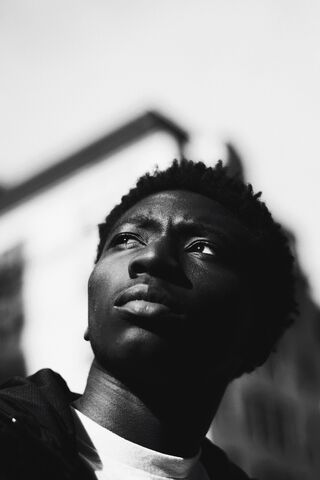Trauma
Why Black People Are Traumatized by Police Encounters
Police brutality can lead to PTSD, particularly among Black people.
Posted June 23, 2020
This post was co-authored with Stephanie Yee, a doctoral candidate in counseling psychology at The University of Maryland.

When Mike, a 22-year-old Black man, was walking home from his work as a bartender, the police surrounded him. His headphones were on, and he was unable to understand what they were saying, but he looked up to see their guns pointed at him. He didn’t know what to do. If he tried to take his headphones off, he worried it would look like a sudden movement. He stood still because he was afraid for his life, he told me. Later he found out that the police surrounded him because he fit a description.
Research finds that, as a Black man, Mike is more likely than non-Black people to be stopped by police, treated with excessive use of force, and killed in those encounters. Given that his race makes him more vulnerable to this kind of trauma, his experience qualifies as a racial trauma. Racial trauma occurs when a racial minority survives a racist incident, such as discrimination or racially motivated physical attacks, and experiences trauma symptoms. One study found that among young men in an urban setting, those who had more contact with police and more intrusive stops reported greater trauma and anxiety symptoms, such as nightmares, flashbacks, and intrusive thoughts. Focus groups with Black youth reveal that Black children experience hypervigilance, a symptom of PTSD, around the police, which occurs when people scan the environment, assessing their personal safety, adjusting their behaviors to keep themselves safe.
Understanding that police encounters may cause trauma can help non-Black people better understand Black people's reactions to the police, and it can help Black people address and cope with racial trauma. Non-Black people should understand that trauma triggers, by nature, put trauma sufferers in a fight or flight mode wherein they may get combative or run away in order to protect themselves from re-experiencing the trauma. These reactions are automatic, and explain why many Black people run away at the sight of the police. Trauma sufferers also actively avoid triggers of their trauma, which explains why Black people often avoid the police.
Black people with negative interactions with the police may be experiencing racial trauma if they experience hypervigilance, anxiety, or recurring distressing memories of the racist incident, but a formal diagnosis is needed from a mental health professional. If you are experiencing these symptoms, consider seeking out psychological services from professionals who specialize in trauma with racial minorities. Healing from this trauma will look like sharing stories of racially traumatic experiences, expressing anger or sadness, being affirmed and validated, and reminded not to blame yourself. Also, community support from the family, the church, or the neighborhood helps. Ultimately, the goal for treating racial trauma, however, is to prevent it from happening in the first place. We must address and combat racism in our society, so other Black people don’t have to go through what Mike did.


